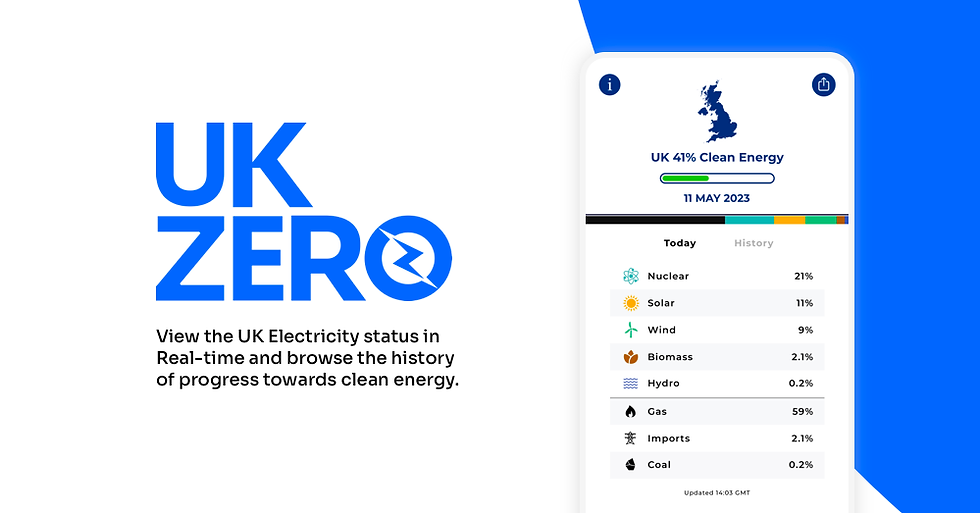Understanding Net Zero: What does it actually mean for the UK?
- Simon Mosdal

- May 9, 2024
- 3 min read
Updated: Jun 5, 2024
As per the Paris Agreement of 2015, many countries, including the UK, have charged themselves with achieving net zero by 2050. That sounds promising, but what does it mean?
Net zero is short for net zero emissions. For us to revert tipping the scale of the damage done to the earth, global greenhouse gas emissions such as carbon need to fall to effectively zero.
In other words, net zero refers to achieving an overall balance between the greenhouse gases entering the atmosphere and those removed from it. Sounds easy enough, right?
Unfortunately, it's not… Many obstacles stand in our way, particularly in the economic sector. Both a lack of government or public funding and a lack of investment in green technologies could prove extremely costly on a global scale. A new study from a German research group says, “Climate change will reduce everyone’s income by about 19 percent over the next 25 years. That would be about $38 trillion per year.”
So, what is being done to combat it?
To effectively prevent harmful emissions, steps need to be taken concerning our use of renewable energy sources: shifting industrial practices and improving our agriculture systems to be sustainable. We need nature-based solutions such as reforestation, carbon capture and storage, and even new tech like direct air capture, which involves removing carbon dioxide straight from the air.
Likewise, the consequences of the UK failing to reach net zero emissions by 2050 would be severe, impacting the environment, economy, and society in unimaginable ways. Do we stand a chance, and if so, what is being done to help?
Currently, the UK is allocating funds to research and development of clean technologies like carbon capture and storage, as it aims for 70% of electricity generation to come from clean sources by 2030. This translates to a massive increase from the current level of around 40%.
The UK has also set ambitious targets for increasing renewable energy generation, with a shift towards solar, wind, and other clean sources. The government is introducing stricter building codes for new constructions to improve insulation and better energy efficiency.
The environmental consequences of failing to reach net zero would leave a lasting impact on our climate, leading to droughts, rising sea levels, and more intense heat waves. Socially, public health could suffer, people might be displaced due to climate events, and existing inequalities could widen.
Reaching net zero requires a collective effort from both individuals and businesses:
Simple changes like using energy-efficient appliances, choosing public transport or cycling and reducing food waste all contribute to a lower carbon footprint.
On the other hand, businesses investing in renewable energy sources, adopting sustainable practices in production and supply chains, and offering low-emission products and services are crucial steps to a greener future.
By working together, individuals and businesses can support the UK's transition to a net zero economy and play a vital role in securing a sustainable future for us all.
Be part of the community keeping track of the UK’s progress to net zero.
Download UK Zero today.

Sources:
Comments